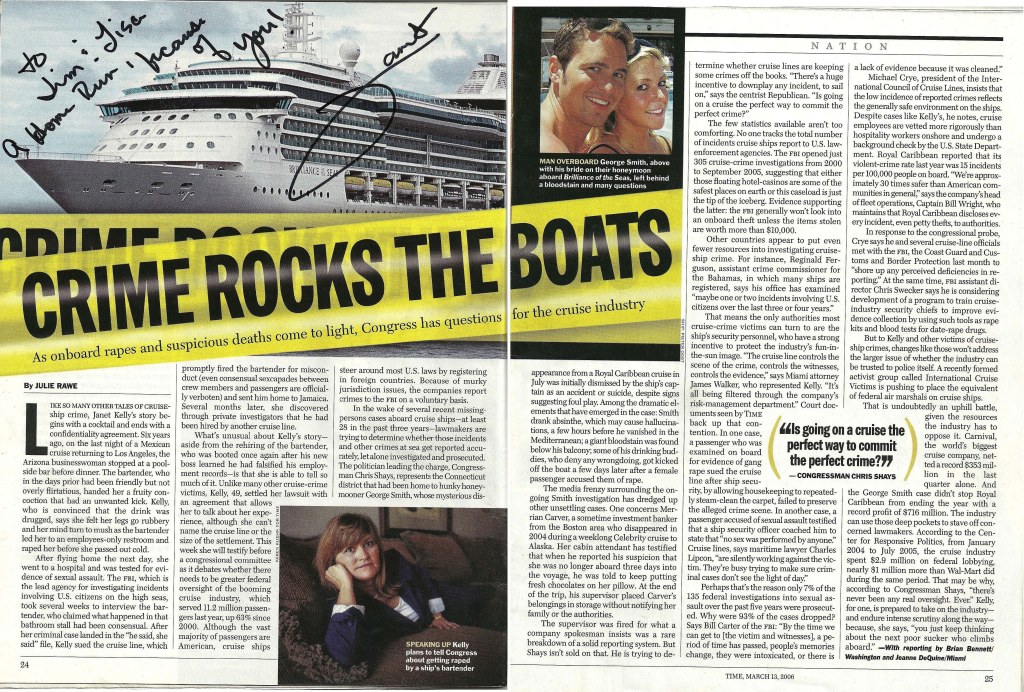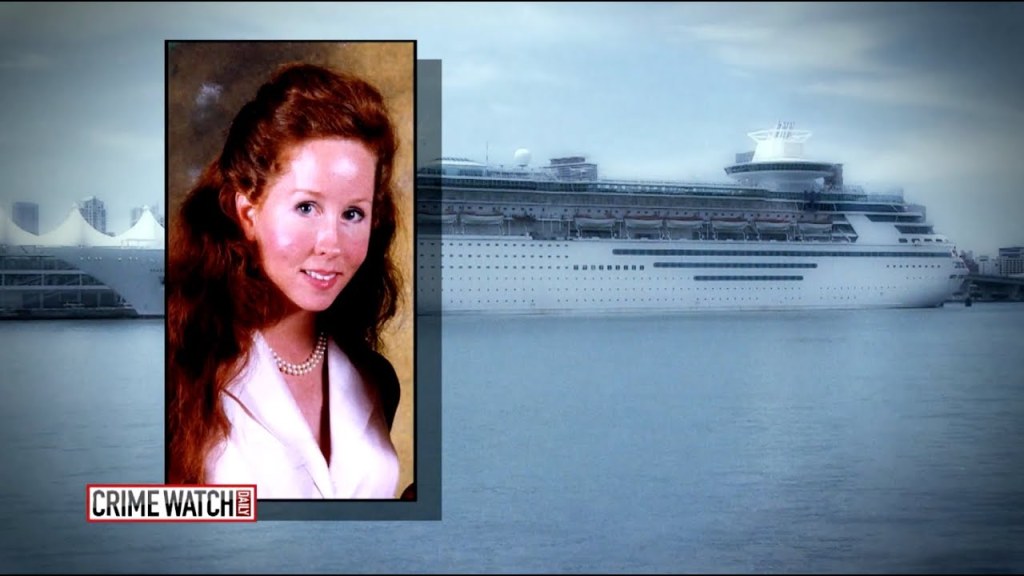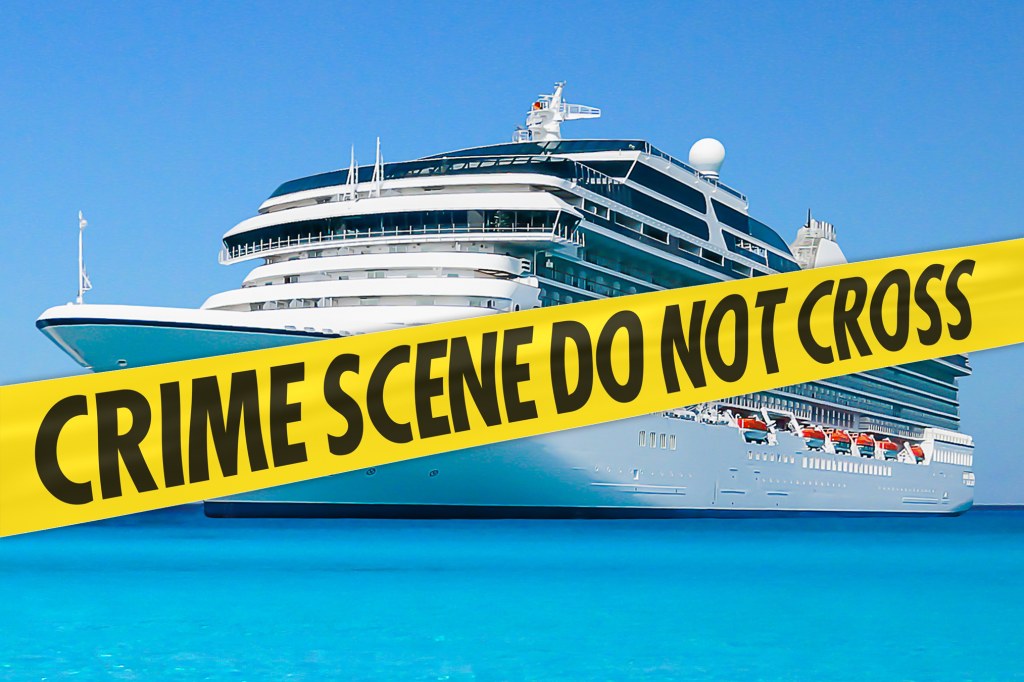Cruise Ship Crime: A Dark Side of the High Seas
Greetings, cruise ship enthusiasts! Today, we delve into a topic that sheds light on the dark side of the high seas: cruise ship crime. While cruise vacations are often associated with relaxation, luxury, and adventure, it is essential to acknowledge that crimes can occur onboard these floating cities. This article aims to provide a comprehensive overview of cruise ship crime, its causes, implications, and measures to ensure a safe and enjoyable voyage. So, let’s embark on this journey together and explore the hidden realities behind the glitz and glamour of cruise ship travel.
Introduction
Before we dive into the details, it is crucial to emphasize that cruise ship crime is relatively rare. However, like any other environment where large groups of people coexist, incidents can occur. Cruise ships, accommodating thousands of passengers and crew members, create a unique setting that poses its own set of challenges when it comes to maintaining safety and security.
1. Definition and Scope of Cruise Ship Crime
Cruise ship crime encompasses a wide range of offenses that can occur onboard or during shore excursions. These crimes include theft, assault, sexual harassment, and even more severe offenses like rape or murder. It is important to note that the vast majority of cruise ships prioritize passenger safety and implement rigorous security measures to prevent and respond to criminal activities.

Image Source: cruiselawnews.com
2. Passenger Demographics and Crime Rates
The demographics of cruise ship passengers play a significant role in the occurrence of crimes. Cruise vacations attract people from all walks of life, including families, solo travelers, honeymooners, and retirees. Naturally, with a diverse group of individuals, conflicts and incidents may arise. However, statistics reveal that the overall crime rate on cruise ships is relatively low compared to similar settings on land.
3. Cruise Line Responsibility and Legal Framework
Cruise lines have a legal and moral responsibility to ensure the safety and well-being of their passengers and crew. They are required to adhere to specific regulations and guidelines established by international maritime law. These regulations cover various aspects, including security protocols, training for crew members, and reporting procedures for crimes that occur onboard.

Image Source: ytimg.com
4. Reporting and Investigation Procedures
Reporting and investigating crimes on a cruise ship can be complex due to the unique jurisdictional challenges involved. The ship’s flag state, the victim’s nationality, and the location of the incident all contribute to determining which laws and authorities apply. Cruise lines have implemented procedures to handle and report crimes promptly, aiming to ensure justice for victims and maintain transparency.
5. Safety Measures and Crime Prevention
Cruise lines continuously strive to enhance safety measures and crime prevention strategies. These include security screenings, CCTV surveillance, trained security personnel, and a visible onboard presence of law enforcement officers. Additionally, passenger awareness programs and safety drills are conducted to educate and empower travelers to protect themselves and their belongings.

Image Source: nypost.com
6. Collaboration and Industry Efforts
The cruise industry as a whole recognizes the importance of maintaining safety and security standards. Cruise lines collaborate with industry organizations, authorities, and law enforcement agencies to exchange best practices, enhance training programs, and address any emerging challenges. These collaborative efforts aim to create a robust framework that ensures the well-being of everyone onboard.
What is Cruise Ship Crime?
Cruise ship crime refers to various criminal activities that can occur onboard a cruise ship or during shore excursions. These crimes can range from minor offenses like theft or harassment to more serious incidents such as assault, rape, or even murder. While relatively rare, these crimes highlight the need for effective security measures and crime prevention strategies in the cruise industry.
Theft and Pickpocketing
One common type of crime on cruise ships is theft, where passengers’ belongings are stolen, often in crowded areas like the ship’s pool deck or dining areas. Pickpocketing is also a concern during shore excursions, particularly in tourist-heavy destinations. Cruise lines implement security measures and advise passengers to remain vigilant and take necessary precautions to protect their valuables.
Assault and Harassment
Assault and harassment can occur onboard a cruise ship, involving both passengers and crew members. These incidents range from verbal altercations to physical confrontations. Cruise lines have strict policies against such behavior and take immediate action to address incidents, ensuring the safety and well-being of all passengers.
Sexual Crimes
Sexual crimes, including sexual harassment, assault, and rape, are among the most serious offenses that can occur onboard a cruise ship. Cruise lines have a zero-tolerance policy for such crimes and provide training to crew members to identify and respond appropriately to incidents. Victims are encouraged to report immediately, and investigations are conducted with the utmost sensitivity and confidentiality.
Drug Offenses
While cruise lines implement stringent policies against drug use and possession, instances of drug offenses can still occur onboard. Cruise ships have security measures in place to detect and prevent drug smuggling. Offenders caught with illegal substances face severe consequences, including disembarkation at the next port and potential legal action.
Disorderly Conduct
Disorderly conduct involves disruptive behavior that may disturb other passengers’ peace and safety. This can include excessive alcohol consumption, rowdy behavior, or non-compliance with safety regulations. Cruise lines have established protocols to address and mitigate such incidents, ensuring a harmonious and enjoyable environment for all passengers.
White-Collar Crime
While relatively rare, incidents of white-collar crime can occur within the cruise industry. Examples include embezzlement, fraud, or identity theft involving crew members or even passengers. Cruise lines have implemented internal controls and work closely with law enforcement agencies to prevent and address such offenses.
Who is Responsible for Cruise Ship Crime?
Identifying the parties responsible for cruise ship crime can be complex due to the unique jurisdictional challenges involved. The responsibility is shared among various entities, including:
Cruise Lines
Cruise lines bear a significant responsibility for the safety and security of their passengers and crew. They are obligated to implement security measures, train their staff, and establish protocols to prevent and respond to criminal activities. Cruise lines can face legal consequences if they fail to meet these obligations.
Flag State
The flag state of a cruise ship is responsible for ensuring compliance with international maritime laws and regulations. They conduct inspections, issue certifications, and investigate incidents that occur onboard ships flying their flag. The flag state has the authority to enforce penalties and take appropriate actions to maintain safety and security standards.
Port Authorities
Port authorities play a crucial role in ensuring the safety and security of cruise ship passengers. They collaborate with cruise lines, law enforcement agencies, and other stakeholders to establish and enforce regulations for ships visiting their ports. Port authorities conduct security screenings and inspections to identify potential threats and ensure compliance with safety standards.
When Do Cruise Ship Crimes Occur?
Cruise ship crimes can occur at any time during a voyage, both onboard and during shore excursions. The following factors contribute to the occurrence of crimes:
Alcohol Consumption
Excessive alcohol consumption can lead to a higher risk of incidents such as assaults, harassment, or disorderly conduct. Cruise lines have policies and procedures in place to promote responsible drinking and intervene when necessary to maintain a safe and enjoyable environment for all passengers.
Late-Night Activities
In some cases, crimes may occur during late-night activities or parties onboard. The combination of alcohol, crowded spaces, and a relaxed atmosphere can create an environment where offenses are more likely to happen. Cruise lines have security personnel present during these events to ensure the safety of passengers and deter criminal activities.
Shore Excursions
Shore excursions present additional risks, as passengers are exposed to unfamiliar environments and local communities. Crimes like theft, assault, or scams can occur during these excursions, emphasizing the importance of staying vigilant, following safety guidelines, and choosing reputable tour operators.
Where Do Cruise Ship Crimes Occur?
Cruise ship crimes can occur in various areas onboard, as well as during shore excursions. The following are some common locations:
Staterooms and Balconies
Crimes like theft can occur in passengers’ staterooms, particularly if valuables are left unattended or if doors are left unlocked. It is essential to exercise caution and utilize the in-room safes provided for storing valuable belongings. Balconies can also pose risks if proper safety protocols are not followed.
Public Areas
Crowded public areas like pools, bars, or entertainment venues can be susceptible to crimes such as theft or harassment. Passengers should remain aware of their surroundings, avoid leaving personal items unattended, and report any suspicious behavior to cruise ship staff.
Shore Excursion Destinations
Crimes can occur during shore excursions, particularly in tourist-heavy destinations where pickpocketing or scams may be prevalent. It is advisable to research and choose authorized tour operators, stay in groups, and follow local safety guidelines to minimize risks.
Why Do Cruise Ship Crimes Happen?
Several factors contribute to the occurrence of cruise ship crimes:
Opportunity
Cruise ships are large complexes accommodating thousands of passengers and crew members. The sheer size and complexity of these floating cities can create opportunities for crimes to occur, particularly if individuals take advantage of crowded areas or lax security measures.
Disputes and Conflicts
As with any environment where people from different backgrounds coexist, conflicts and disputes can arise. Disagreements between passengers, crew members, or a combination of both can escalate into criminal acts if not addressed promptly and appropriately.
Alcohol and Substance Abuse
Excessive alcohol consumption or drug abuse can impair judgment and increase the likelihood of criminal behavior. Cruise lines have policies in place to prevent overconsumption and intervene when necessary to maintain a safe environment for all passengers.
Lack of Awareness
Some crimes may occur due to a lack of awareness or complacency on the part of passengers. Failing to take necessary precautions, leaving valuables unattended, or not reporting suspicious activities can make individuals more vulnerable to criminal acts.
External Factors
External factors, such as socioeconomic conditions in port destinations, can contribute to the occurrence of crimes during shore excursions. It is important to research and choose reputable tour operators and follow local safety guidelines to minimize risks.
How to Prevent Cruise Ship Crimes?
Preventing cruise ship crimes requires a collective effort from cruise lines, passengers, and authorities. The following measures can help enhance safety and security:
Passenger Awareness
Passengers should familiarize themselves with safety procedures, be aware of their surroundings, and report any suspicious activities to cruise ship staff. It is essential to exercise caution when venturing onshore and follow local safety guidelines.
Security Measures
Cruise lines invest in security technologies, such as CCTV surveillance systems, access control measures, and trained security personnel. These measures serve as deterrents and aid in the detection and prevention of criminal activities.
Collaboration with Authorities
Cruise lines collaborate with law enforcement agencies, port authorities, and industry organizations to exchange best practices, enhance training programs, and address emerging challenges. These collaborations ensure a coordinated response and continuous improvement in safety and security measures.
Zero-Tolerance Policies
Cruise lines have implemented zero-tolerance policies towards any form of criminal activity. Offenders face severe consequences, including immediate disembarkation at the next port and potential legal action.
Passenger Support Services
Cruise lines provide passenger support services, including helplines and onboard personnel trained to assist victims of crimes or offer counseling. These services ensure that victims receive the necessary support and resources during difficult times.
Advantages and Disadvantages of Cruise Ship Crime
Like any topic, cruise ship crime has its pros and cons. Let’s explore these advantages and disadvantages:
Advantages of Addressing Cruise Ship Crime
– Increased passenger safety and security
– Improved cruise experience for all passengers
– Enhanced reputation and trust in the cruise industry
– Collaboration and sharing of best practices among cruise lines
– Strengthened relationships with law enforcement agencies and port authorities
Disadvantages of Cruise Ship Crime
– Potential negative publicity for cruise lines
– Emotional and physical harm to victims
– Legal and financial implications for cruise lines
– Decreased passenger confidence and trust in the industry
– Impact on the overall perception of cruise vacations
Frequently Asked Questions (FAQ)
Q: Are cruise ships safe from crime?
A: Cruise ships prioritize passenger safety and implement stringent security measures. While incidents can occur, cruise ship crime is relatively rare compared to similar settings on land.
Q: What should I do if I witness or experience a crime onboard?
A: If you witness or experience a crime onboard, report it immediately to cruise ship staff. They are trained to handle such incidents and will take appropriate action to ensure your safety and well-being.
Q: How can I protect myself from cruise ship crime?
A: To protect yourself from cruise ship crime, remain aware of your surroundings,